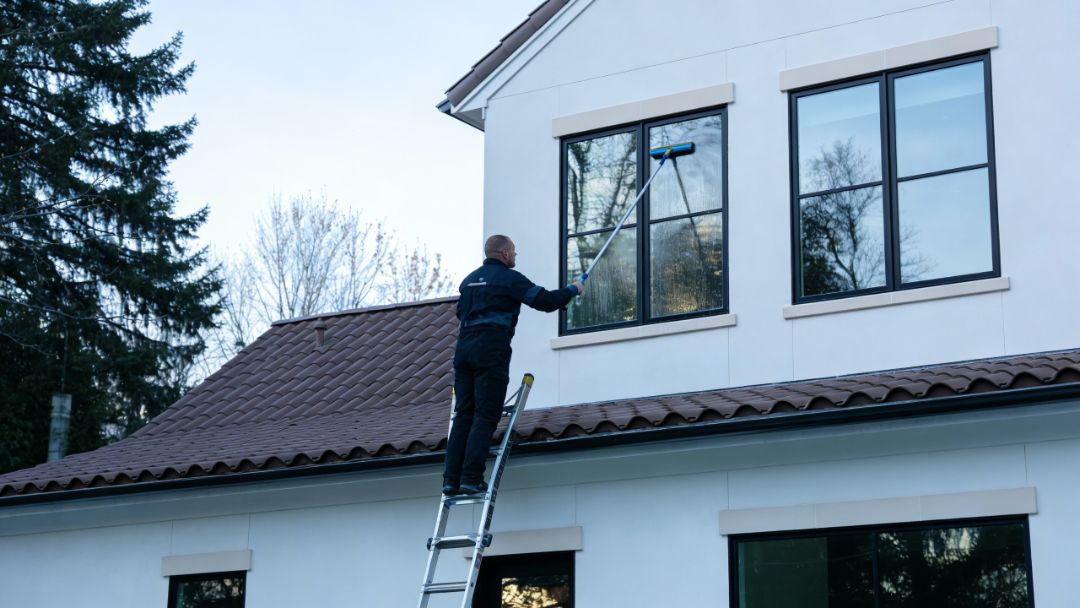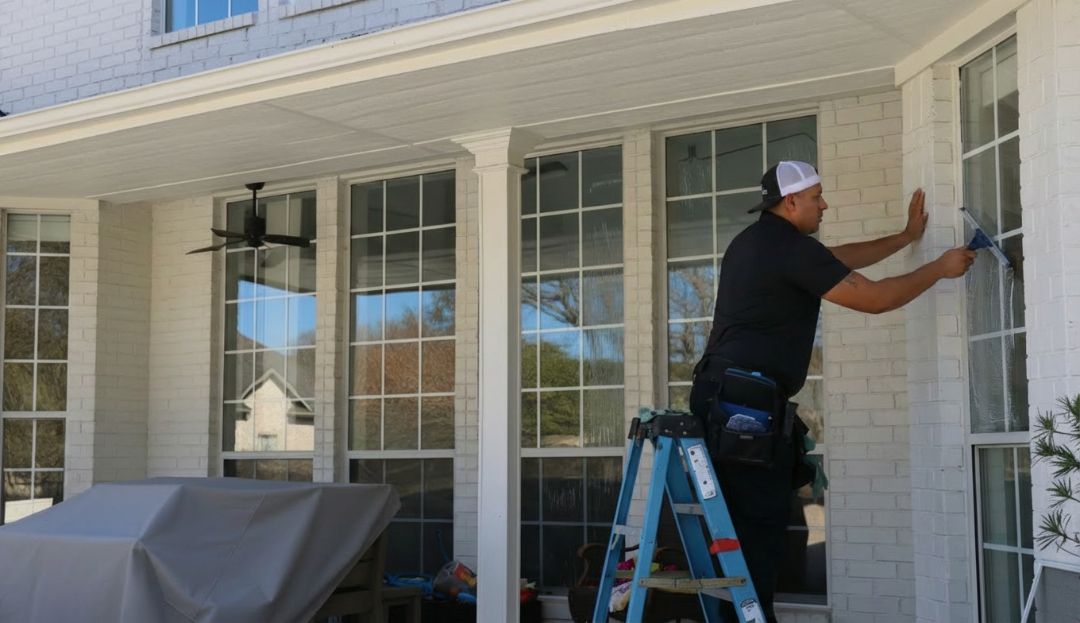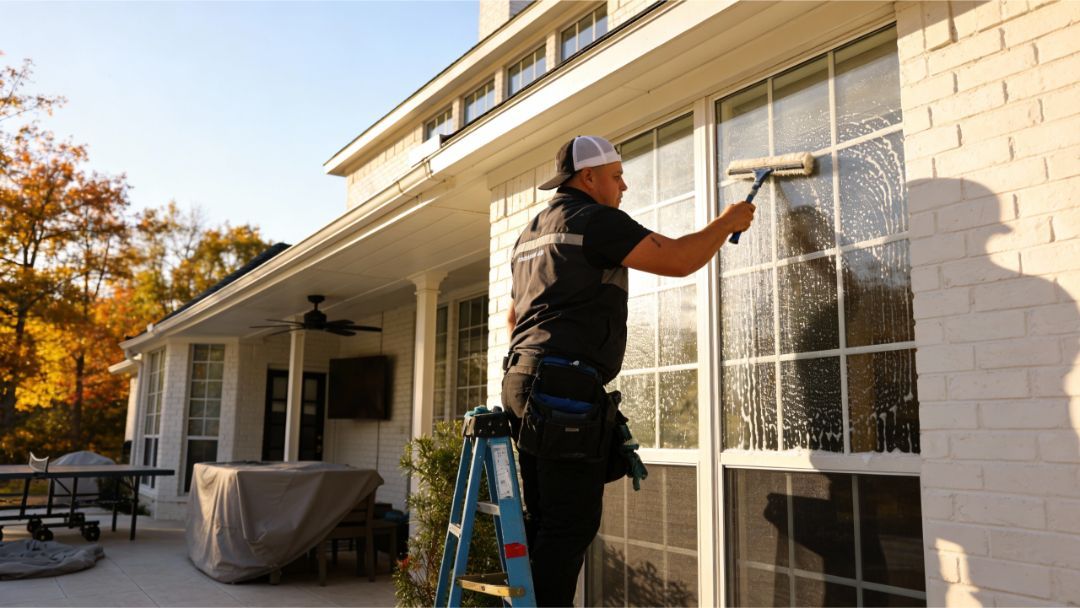How to Clean Mold Off Window Sills?
TLDR;
To clean mold off window sills, spray the affected area with white vinegar or hydrogen peroxide, let it sit for 30–60 minutes, scrub with a brush, and wipe dry. For wood, vinyl, or metal surfaces, choose methods suited to the material, and keep humidity low to prevent mold from returning.
Why Does Mold Grow on Window Sills?
Mold on window sills is usually caused by a combination of moisture and poor air circulation. When condensation forms on cold windows—especially in winter—it creates the perfect environment for mold spores to settle and thrive.
Common causes of mold near windows:
- Indoor humidity: Excess moisture from cooking, showering, or drying clothes indoors
- Window condensation: Temperature differences between inside and outside
- Poor ventilation: Lack of airflow traps moisture
- Leaky windows or frames: Cracks or gaps allow water intrusion
- Cold climates: Frequent window sweating leads to long-term dampness
Mold types commonly found on window sills include:
- Black mold: Often toxic, dark, and slimy
- Mildew: Powdery white or gray and less aggressive
- Green or orange mold: Less common but still problematic
Mold can also hide behind blinds, curtains, or inside the window frame where it goes unnoticed until it spreads.
What Kind of Mold Is on Your Window Sill?
Not all mold is equal. Some are just unsightly, while others can affect your health.
Visual clues to identify window mold:
- Black mold: Dark green to black, slimy texture, strong musty smell
- Mildew: White or gray, powdery surface
- Colored molds: Orange, pink, or greenish hues often caused by environmental fungi
Signs of toxic mold:
- You experience coughing, sneezing, watery eyes, or headaches near the window
- Mold returns quickly even after cleaning
- Mold spreads to walls, curtains, or nearby furniture
If symptoms persist or mold spreads fast, professional testing may be needed.
Safety Tips Before Removing Mold from Window Sills
Cleaning mold may seem simple, but it releases spores that can irritate your lungs or skin. Protect yourself and the space before you start.
Before you clean:
- Wear protective gear:
- N95 mask or respirator
- Rubber gloves
- Safety goggles
- Ventilate the area:
- Open windows if possible
- Use a fan to direct spores outside
- Seal off the cleaning area:
- Close doors to nearby rooms
- Cover vents or registers to prevent spore spread
- Use a HEPA
vacuum:
- After cleaning, vacuum the area to trap loose spores
- Avoid regular vacuums—they blow spores back into the air
How to Clean Mold Off Window Sills (Step-by-Step)
Different materials require different cleaning approaches. Here’s how to tackle mold safely based on the type of window sill.
Wooden Window Sills
Wood is porous and delicate, so harsh chemicals may cause damage.
Steps:
- Vacuum or dry-brush loose mold gently
- Mix white vinegar and water (1:1 ratio) in a spray bottle
- Spray generously and let sit for 1 hour
- Scrub with a soft-bristle brush or cloth
- Wipe clean with a damp cloth, then dry immediately
- For stains: Apply baking soda paste, let sit, and scrub again
Avoid soaking the wood—moisture can worsen the problem.
Vinyl Window Sills
Vinyl is non-porous, so it's more forgiving with stronger cleaners.
Steps:
- Spray undiluted vinegar or 3% hydrogen peroxide directly on the mold
- Let sit for 30–45 minutes
- Scrub using a medium brush or old toothbrush
- Wipe clean with damp rag, then dry completely
- For deep stains: Try diluted bleach (1 part bleach to 10 parts water)
Test a small area first to avoid discoloration.
Aluminum or Metal Sills
Metal won’t absorb mold but may rust if left damp too long.
Steps:
- Spray vinegar or peroxide and let sit for 20–30 minutes
- Scrub with a stiff brush or non-abrasive pad
- Wipe with clean cloth and rinse with warm water
- Dry thoroughly to prevent corrosion
For stubborn patches, a small amount of rubbing alcohol or bleach can help.
Consistent
mold and mildew removal with window cleaning is most effective when you focus on problem-prone zones that trap moisture.
Key areas to target regardless of material:
- Window tracks
- Behind blinds or curtains
- Caulking and seals
- Corners where moisture collects
Natural Ways to Remove Mold from Window Sills
For those who prefer chemical-free cleaning, natural remedies can be just as effective—especially for mild to moderate mold. If you're already using homemade window cleaning solutions, many of the same ingredients—like vinegar, baking soda, or lemon juice—can double as effective mold treatments.
Top natural mold removers:
- White vinegar: Antibacterial, antifungal. Use undiluted in spray form.
- Baking soda: Deodorizes and scrubs without scratching.
- Tea tree oil: Mix 1 tsp with 1 cup of water. Antifungal and aromatic.
- Hydrogen peroxide (3%): Fights mold and lightens stains.
- Lemon juice: Acidic and fragrant but less potent than vinegar.
DIY Natural Mold Spray Recipe:
- 1 cup white vinegar
- 1 tbsp baking soda
- 10 drops tea tree oil
- Shake well and spray liberally
Natural methods work well for:
- Early-stage or small mold patches
- Regular maintenance
- Households with pets, kids, or chemical sensitivities
However, if mold is stubborn or returns quickly, switch to stronger treatments.
How to Prevent Mold on Window Sills
Prevention is the best mold-fighting strategy. Mold can return within days if moisture problems aren’t solved.
Prevention tips:
- Control indoor humidity:
- Use a dehumidifier, especially in bedrooms or basements
- Keep humidity between 30–50%
- Ventilate regularly:
- Open windows daily for airflow
- Run bathroom and kitchen fans when cooking or showering
- Fix window leaks immediately:
- Inspect for gaps in seals or caulking
- Replace cracked glass or deteriorated frames
- Install anti-mold paint or sealant:
- Especially helpful on wooden sills
- Choose moisture-resistant, mildew-proof paints
- Establish a cleaning routine:
- Wipe down sills weekly
- Inspect for early mold signs monthly
- Improve insulation:
- Prevents condensation build-up
- Upgrade to double-pane or thermal windows if possible
Signs You Need Professional Mold Remediation
Sometimes DIY isn't enough. Mold can be a symptom of a bigger problem like structural damage or water intrusion.
When to call a pro:
- Mold covers more than 10 square feet
- It keeps coming back despite cleaning
- You smell mold but can’t see it (could be hidden)
- Health symptoms (asthma, headaches, rashes) worsen indoors
- Water stains or warped wood appear near windows
What to expect:
- Full mold inspection and moisture source detection
- Air quality testing (if needed)
- Safe removal and disposal
- Repairs or recommendations for window replacement
Look for licensed and certified mold remediation contractors with experience in residential window issues.







